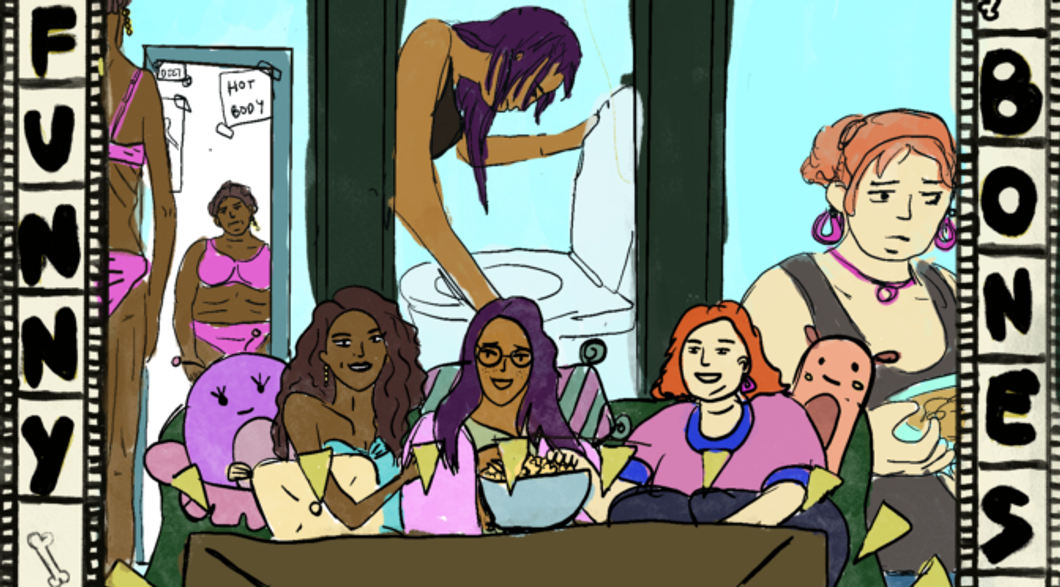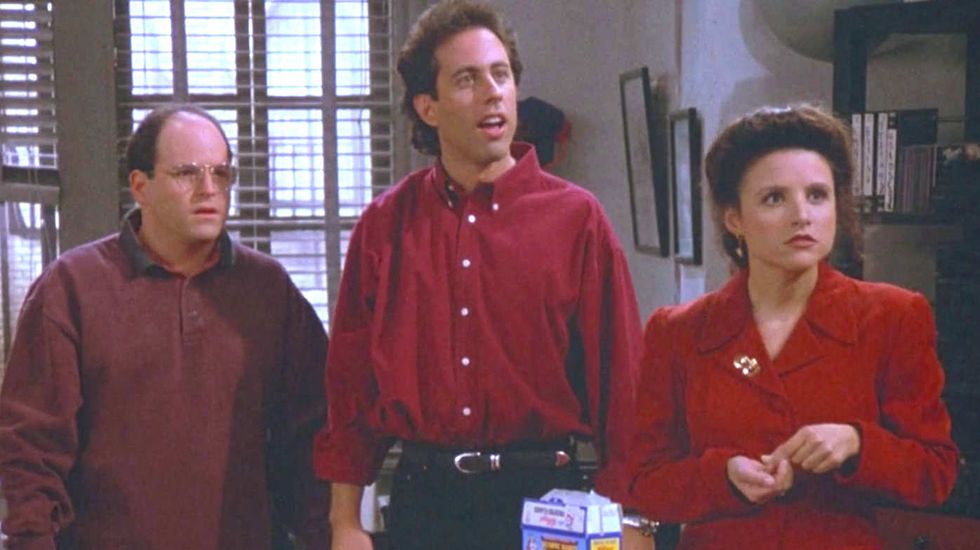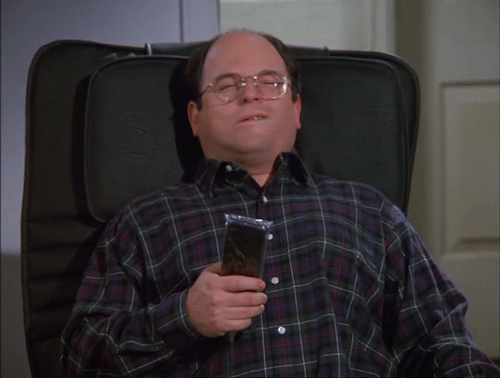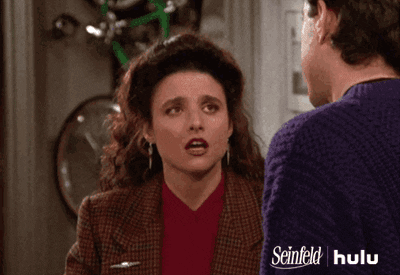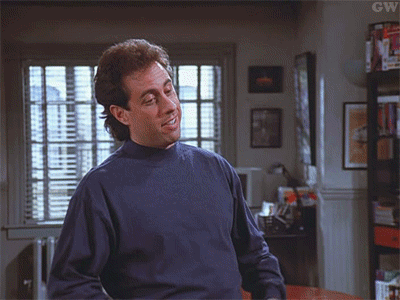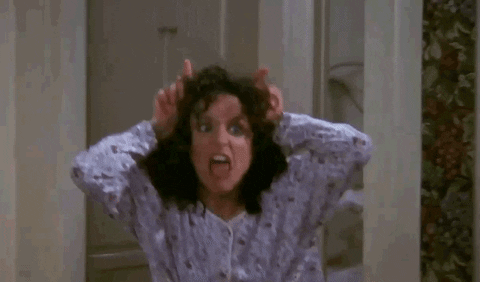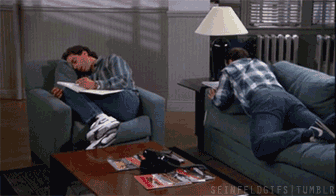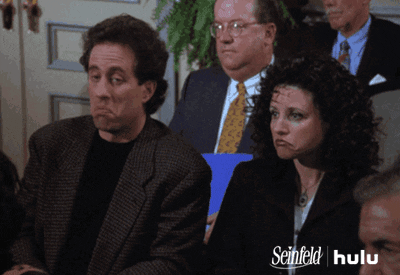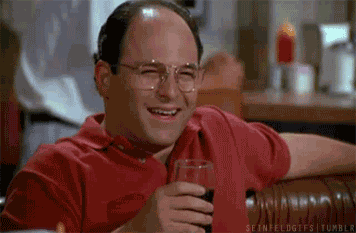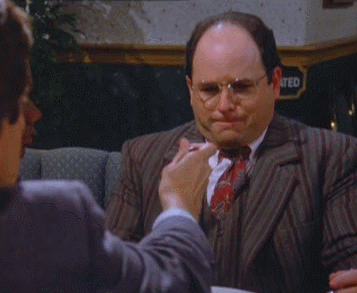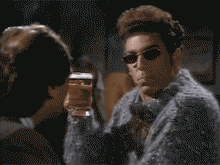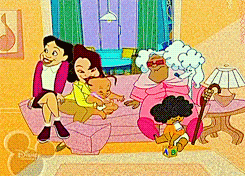Funny Bones: Eating Disorders in Comedy
The problem with how sitcoms treat eating disorders.
Disclaimer: While eating disorders are a major issue that can impact anyone, this article will primarily focus on the way comedic media treats female characters in regards to eating/exercise behaviors as these are the characters eating disorder “jokes” tend to focused on. If you or anyone you know is struggling with an eating disorder, please seek help immediately. Everyone deserves a healthy relationship with food, exercise and their body.
Hollywood is full of unrealistic body expectations. From digital retouching to cosmetic surgeries, Hollywood and celebrities are under constant pressure to keep everyone looking supernaturally perfect all the time.
As if this doesn’t have a big enough impact on the self-esteem of impressionable girls and women everywhere, many comedic shows tend to make the same cheap “joke.”
We’ve all seen it. A beautiful woman in a scene displays some kind of eating disorder behavior but it’s played off as being “just how those crazy girls are” and lumped in with a cheesy laugh track.
Don’t believe me? Let’s take a look at one of the most popular comedies in the last 10 years, “New Girl.” This Fox show was named one of the best new comedies when it premiered in 2011 and still has a large fan base.
It’s full of dynamic characters, hilarious moments and unfortunately, total disrespect for the severity of eating disorders. You don’t have to look any further than season 4, episode 16 “Oregon” to see one of the most horrific examples of this. Ashely Berkman, played by the stunning Kaitlin Olson, enters the scene.
From the moment she comes into the room, the topic becomes food. The scene hits its unsettling climax when Ashley remarks “I haven’t eaten in three weeks. Trying to fit into my wedding dress.” The character doesn’t say the line ironically and she later reveals she is so hungry her dreams are about food. Despite the terrifying and life-threatening connotations of the scene, none of the characters point out any issues with it and the situation is presented as if the audience should laugh.
At this point, you may be thinking “New Girl is just one show. Maybe the issue of eating disorders being treated as jokes is isolated to the “New Girl” writers' room.” Unfortunately, no.
Let’s talk about the iconic medical comedy “Scrubs”. The show ran for almost a decade and had nine seasons. “Scrubs” is from an entirely different production company than “New Girl” but the idea that eating disorders equate to comedy is the same. I’ll paint the scene:
Two main characters, J.D., a man, and Elliot, a woman, are walking down a hallway. The pair are discussing their upcoming vacation while they enjoy donuts.
“Think about it, Elliot. Three days and you’re walking on the beach in your bikini,” J.D. says. Elliot immediately spits out her donut, an indicator of bulimia, a common bingeing and purging eating disorder. A laugh track plays and J.D. is unbothered.
Pretty much every main character in “Scrubs” is a trained medical professional yet none of them recognize this as a serious issue or try to talk to Elliot about it.
“New Girl” and “Scrubs” are far from the only comedies that hold this disturbing trend. If you want to see more examples for yourself, just take a look at other comedy shows like “Glee”, “Friends” and “How I Met Your Mother.” All of these have made the same kind of “joke.”
Why does it matter though? It’s just fake characters with fake disorders, right? Well, yes, but they have real consequences. Showing viewers, especially young viewers that these sorts of behaviors are not only acceptable but funny is irresponsible at best and deadly at worst. It is particularly damaging because the actresses who speak these lines are beautiful. So, a message is lodged in every viewer’s mind. “If you want to be beautiful like this person, you should do what this person is doing.” Suddenly, an eating disorder is born.
This is not to say that comedy and media are responsible for all eating disorders. However, this is a call for comedies to stop treating eating disorders and those affected by them as punchlines.
I said this at the beginning of the article but I will say it again because it is the most important thing in the entire article: if you or anyone you know is struggling with an eating disorder or eating disorder behaviors— seek help immediately. You deserve to be healthy.
